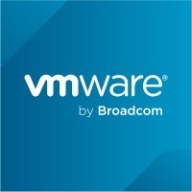

Nutanix Cloud Clusters and VMware Tanzu Platform are leading solutions in cloud management. Nutanix appears to have a competitive edge due to its cost control features and support systems, while Tanzu excels in integration capabilities.
Features: Nutanix Cloud Clusters offer flexibility, unified management across environments, and focus on cost management, storage, and workload performance. VMware Tanzu Platform integrates with vSphere and provides Kubernetes cluster management with ease of use and operational control.
Room for Improvement: Nutanix users recommend simplifying pricing, setup interfaces, and enhancing data restoration. Users also report complex initial setup and occasional stability issues. VMware Tanzu needs better integration with non-VMware products, improved security models, reduced complexity, and more flexible pricing for container solutions.
Ease of Deployment and Customer Service: Nutanix is known for robust support and proactive solutions but faces integration challenges with existing systems. VMware Tanzu is noted for easy hybrid and multi-cloud deployments. Differences are seen in their integration practices, with Tanzu being stricter for non-VMware integrations.
Pricing and ROI: Nutanix's flexible licensing can be expensive, but it provides ROI through reduced TCO and long-term benefits. VMware Tanzu is also costly, typically preferred by larger enterprises. Its integration of additional services increases costs but matches its advanced features, creating a distinct cost-benefit dynamic.
| Product | Market Share (%) |
|---|---|
| Nutanix Cloud Clusters (NC2) | 0.9% |
| VMware Tanzu Platform | 1.0% |
| Other | 98.1% |

| Company Size | Count |
|---|---|
| Small Business | 11 |
| Midsize Enterprise | 8 |
| Large Enterprise | 12 |
| Company Size | Count |
|---|---|
| Small Business | 10 |
| Midsize Enterprise | 3 |
| Large Enterprise | 10 |
Nutanix Cloud Clusters (NC2) provide scalable and cost-efficient infrastructure management across cloud and on-premises environments. With features like data portability and ease of setup, NC2 enables seamless migration without application refactoring.
Nutanix Cloud Clusters (NC2) supports businesses in managing hybrid IT environments, enhancing disaster recovery, and optimizing workloads. Users value NC2 for its unified management platform and redundancy features, facilitating cloud migration and integration with major cloud providers. Challenges include pricing and initial setup complexity, as well as feature parity between different cloud services.
What are the key features of Nutanix Cloud Clusters (NC2)?Nutanix Cloud Clusters (NC2) find application in industries requiring reliable infrastructure management, like finance and healthcare, to safeguard critical systems. Organizations leverage NC2 for virtual desktops, application modernization, and smooth transition to cloud operations, improving data security and replication processes.
VMware Tanzu Platform is designed for cloud-native development and management of Kubernetes, CI/CD processes, microservices, and containerized workloads. It supports deployments both on cloud and on-premises, providing centralized management via Mission Control.
VMware Tanzu Platform offers seamless integration with vSphere, ESX, and vSAN, supporting centralized cluster management and lifecycle management. The platform provides a GUI for monitoring CI/CD pipelines and network policies, enhancing multi-tenancy and Day 2 operations. Users can easily manage Kubernetes clusters, monitor applications, and integrate with tools such as GitHub, GitLab, Cloud Foundry, and Azure. It ensures compliance and security for service providers, financial institutions, and businesses.
What are the key features of VMware Tanzu Platform?
What benefits and ROI should users look for in VMware Tanzu Platform reviews?
Industries such as financial institutions, service providers, and businesses requiring rigorous compliance and security deploy VMware Tanzu Platform. These entities benefit from centralized management, streamlined DevOps processes, and integrated tools, enhancing their capabilities in cloud-native developments and containerized workloads.
We monitor all Cloud Management reviews to prevent fraudulent reviews and keep review quality high. We do not post reviews by company employees or direct competitors. We validate each review for authenticity via cross-reference with LinkedIn, and personal follow-up with the reviewer when necessary.